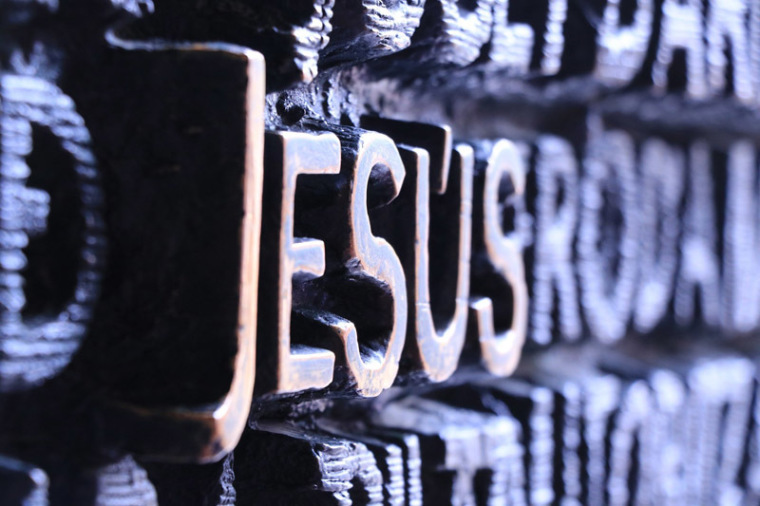
Politics and spirituality often appear contradictory with the latter regularly assumed to be a mere synonym for religion attempting to assert its influence in the public sphere.
But spirituality need not necessarily be pure of particular religious beliefs but the recognition that the metaphysical realm exists beyond our physical beings. I write not as much to make the argument of a dualism of the material and spiritual but as an exhortation for our modern culture’s need to realise thus what is beyond just ourselves.
Regimes of power of which Western democracies are one of many types thrive off the birthing of a strong economy and the protection of such gains through the appropriation of wealth. Little room exists for a focus to be placed upon a higher motivating vision that strives beyond the day-to-day contemporary political economy.
In Australia, the Liberal-National Coalition government finds itself in an increasingly difficult wedge between appeasing its conservative base and implementing liberal ideals. Many now feel such Coalition has to lead with a vision and that much of the government’s decision making has been reactionary without a clear underlying principled framework.
Likewise, such could potentially be said about the opposition Labor Party where its appeal among historically Catholic and religious voters has slipped in recent years as it attempts to balance its position of multiculturalism with new progressive policies often seen at odds with its more traditional base.
While the need to adhere to political party lines often is the focal point of decision making, the role and influence of spirituality should not be neglected or forgotten.
Misunderstood
Our country’s separation of Church and State while often misunderstood as being that persons of religion should not be permitted to have a voice in the public square is a unique protection that upholds the freedom for institutions of belief such as a Church to be free from direct control from the State.
Despite Australia having no official religion, the majority of our country and our politicians continue to hold an underpinning of Christian upbringings to a greater or lesser extent. The notion of service especially self-sacrificial service finds its roots in Christian principles that while maybe increasingly belittled in the mainstream media do play an underpinning to how our country is governed.
The term ‘public servant’ finds its origin fundamentally in the most devout person who served not just a country but the entire world that being Jesus Christ – who gave His life for the sins of all that each one of us may have the opportunity to receive eternal life.
We cannot lose sight of the bigger picture and forsake having a vision that is beyond ourselves. The very real presence of the spiritual realm and in particular Christianity calls us to shift our focus beyond just the immediate political goals of the pursuit of power.
Hence while we as Australians perhaps and I say with a grain of salt might not be as subjected to the socio-political divide of the United States Republicans vs Democrats, nevertheless the gulf between the Right and the Left down under is not without concern, especially for how Christianity is represented.
At the outset, I must be clear that any person who may be right, left-leaning or fence-sitting can be a Christian. One’s faith while should be practised as a reflection of a Christian’s identity is not exclusive or bound to the labels of human political power struggles.
When Christians focus on neo-liberalism, we applaud the opportunity to be generating a strong wealthy economy but often overlook the disparities that trickle-down those who lose out. Conservatives often have been publicly pro-life and pro-family but at least by stereotype less inclined to advocate for social justice and a compassion-based approach.
On the other hand
On the other hand, the left and debatably labelled progressives who are equally passionate about their values are often seen to be the advocates for empathy and compassion on social issues. However, the articulation of the Christian faith as the backbone of such an approach is often lacking and increasingly overlooked as the origins of such social justice.
Without any intention of reducing this article to a debate between right and left-wing economics, it is important to return to the focus on the need to be self-sacrificial hence be moving beyond one’s immediate desires for power and control but taking hold of the bigger picture in that others are awaiting your service.
Salvation cannot be earned through social justice, compassion or even virtue signalling, but however, one in putting their Christianity into action is called upon to practice good works as a testament to their faith. The obligation for Christians yes is to advocate for moral issues such as life and family, but we cannot forsake the pressing issues of achieving common good and social justice.
Our political class and leaders of whom many whiles would appear to be making poor witnesses for the Gospel are still indeed or at least identifying as Christians. We need to be clear in our self-sacrificial vision that while a strong economy is important, the focus isn’t that we should ultimately be striving for safety and security but rather a society that is not indifferent to the struggles of our neighbours.
Mark chapter 8 verse 35 reminds us that “whoever would save their life will lose it, and whoever loses their life for my [Christ’s] and the gospel’s will save”, hence when we try to build a better world – our objective is not for materialism or power, but rather to be transforming the culture into one that disrupts our self-interest.
Often poorly articulated
Christianity despite overall having made the world a better place in the past two centuries has often been poorly articulated whether through miscommunications or the fear of backlash. When politicians fail to clearly outline their vision be it their faith or otherwise and just merely do things that come across as ad-hoc attempts to win votes, our country is not better off.
For the lack of a vision, especially one that is grounded in a Christian commitment involving Christ’s teachings, love, prayer, and commission – our society fails to grasp onto the true spirit of being self-sacrificial. While Church and State are separate (and it is the State that needs to reduce its encroachment on religious practice), Christians must continue to demonstrate and encourage our culture to demonstrate self-sacrifice.
Our socio-political culture ought not to be limited to the narrow focus on establishing a strong economy first as means guaranteeing safety, stability, and security, then which allows for subsequent improvements and achievement of the common good. Our primary goal should be later with the common good of others being at the top of the agenda.

Roydon Ng is a Christian writer and Baptist seminary graduate from Western Sydney.
Soli Deo gloria.
Follow @RoydonNg on Twitter
Email: roydon@roydonng.com.au
Roydon’s previous articles are available at: https://www.christiantoday.com.au/by/roydon-ng